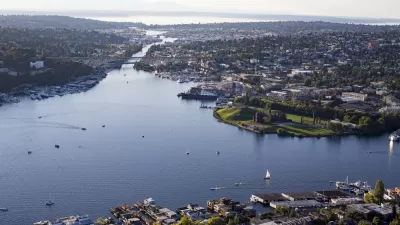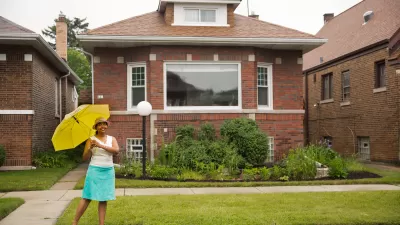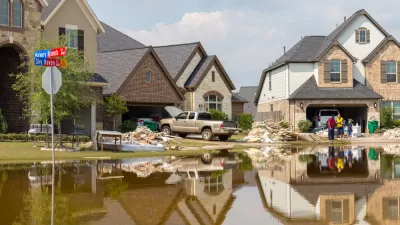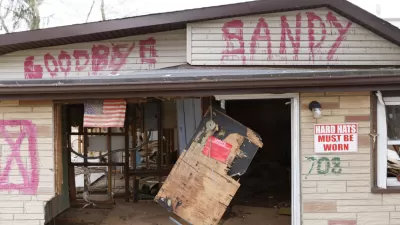Natalie Bicknell notes several deficiencies in the roadmap that resulted from Seattle's participation in the Rockefeller Foundation's now-defunct 100 Resilient Cities program.

When the Rockefeller Foundation pulled the plug on its much-vaunted 100 Resilient Cities program earlier this year, Seattle was still in the middle of its process. "As a result, in comparison to the work achieved by other cities, Seattle's Resilience Roadmap feels rushed and strangely backward looking. Reading through it, I was struck by how the material resembles a laundry list of achievements accomplished by current Mayor Jenny Durkan's administration," Natalie Bicknell writes.
In addition to a generally retrospective focus, the roadmap is also light on details when it comes to weathering natural disasters and climate change. That is, the reasons why resilience became part of the conversation in the first place.
"Seattle's report contains only one slim section devoted to its current strategies for combatting climate change," Bicknell says. And "for a city as threatened by earthquakes as Seattle is, the even shorter shrift given to natural disaster preparedness is a major weakness of the report."
Despite the Seattle roadmap's shortcomings, Bicknell concludes with a word of praise for the erstwhile program. "What 100RC seemed to understand is that cities are complex ecosystems. Establishing urban resilience doesn't result from disconnected programs and policies; instead it arises when the interconnected nature of urban and environmental challenges is acknowledged."
FULL STORY: Seattle’s Resilience Roadmap Lacks a Cohesive Vision for the Future

Study: Maui’s Plan to Convert Vacation Rentals to Long-Term Housing Could Cause Nearly $1 Billion Economic Loss
The plan would reduce visitor accommodation by 25,% resulting in 1,900 jobs lost.

North Texas Transit Leaders Tout Benefits of TOD for Growing Region
At a summit focused on transit-oriented development, policymakers discussed how North Texas’ expanded light rail system can serve as a tool for economic growth.

Using Old Oil and Gas Wells for Green Energy Storage
Penn State researchers have found that repurposing abandoned oil and gas wells for geothermal-assisted compressed-air energy storage can boost efficiency, reduce environmental risks, and support clean energy and job transitions.

Private Donations Propel Early Restoration of Palisades Playground
Los Angeles has secured over $1.3 million in private funding to restore the Pacific Palisades playground months ahead of schedule, creating a modern, accessible space that supports community healing after recent wildfires.

From Blight to Benefit: Early Results From California’s Equitable Cleanup Program
The Equitable Community Revitalization Grant (ECRG) program is reshaping brownfield redevelopment by prioritizing projects in low-income and environmental justice communities, emphasizing equity, transparency, and community benefits.

Planting Relief: Tackling Las Vegas Heat One Tree at a Time
Nevada Plants, a Las Vegas-based nonprofit, is combating the city’s extreme urban heat by giving away trees to residents in underserved neighborhoods, promoting shade, sustainability, and community health.
Urban Design for Planners 1: Software Tools
This six-course series explores essential urban design concepts using open source software and equips planners with the tools they need to participate fully in the urban design process.
Planning for Universal Design
Learn the tools for implementing Universal Design in planning regulations.
Ascent Environmental
Borough of Carlisle
Institute for Housing and Urban Development Studies (IHS)
City of Grandview
Harvard GSD Executive Education
Toledo-Lucas County Plan Commissions
Salt Lake City
NYU Wagner Graduate School of Public Service





























